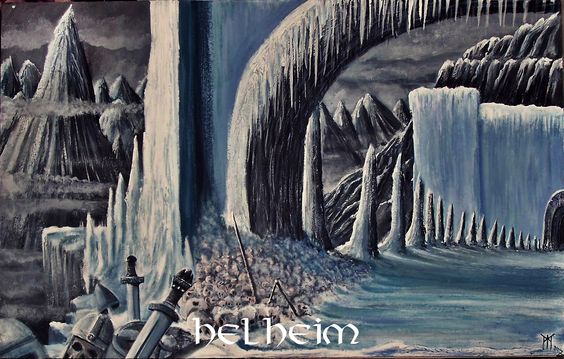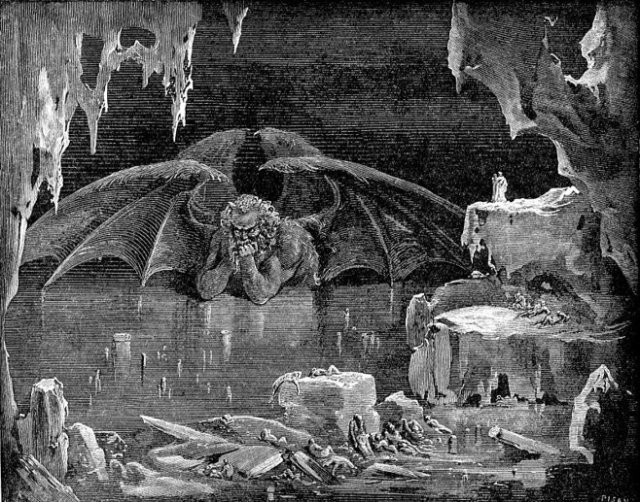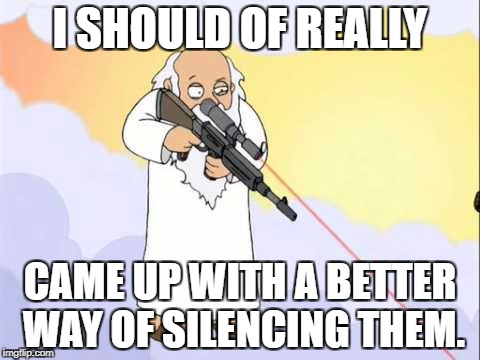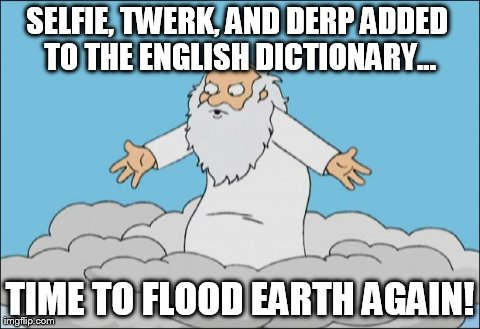Father
Devourer of Truth
She'ol (/ˈʃiːoʊl/ SHEE-ohl or /ˈʃiːəl/ SHEE-əl; Hebrew שְׁאוֹל Šʾôl), in the Hebrew Bible, is a place of darkness to which all the dead go, both the righteous and the unrighteous, regardless of the moral choices made in life, a place of stillness and darkness cut off from life and from God.
The subject of death is treated inconsistently in the Bible, though most often it suggests that physical death is the end of life. This is the case with such central figures as Abraham, Moses, and Miriam.
There are, however, several biblical references to a place called Sheol (cf. Numbers 30, 33). It is described as a region “dark and deep,” “the Pit,” and “the Land of Forgetfulness,” where human beings descend after death. The suggestion is that in the netherworld of Sheol, the deceased, although cut off from God and humankind, live on in some shadowy state of existence.
While this vision of Sheol is rather bleak (setting precedents for later Jewish and Christian ideas of an underground hell) there is generally no concept of judgment or reward and punishment attached to it. In fact, the more pessimistic books of the Bible, such as Ecclesiastes and Job, insist that all of the dead go down to Sheol, whether good or evil, rich or poor, slave or free man (Job 3:11-19).
The inhabitants of Sheol are the "shades" (rephaim), entities without personality or strength. Under some circumstances, they are thought to be able to be contacted by the living, as the Witch of Endor contacts the shade of Samuel for Saul, but such practices are forbidden (Deuteronomy 18:10).
The development of the concept of life after death is related to the development of eschatology (speculation about the “end of days”) in Judaism. Beginning in the period following the destruction of the First Temple in Jerusalem (586 BCE), several of the classical Israelite prophets (Amos, Hosea, and Isaiah) began forecasting a better future for their people.
and the establishment of a Punishment and reward system that is currently used was popularized by the Catholic church. especially Dante's Inferno. while the concept of Hell is not unique to Christianity and is held by other religions also we can clearly see a change in direction of doctrine around the end of the old testament. an example would be burnt offerings while contrary to popular belief did not end because of Jesus but are visibly ended at the end of the old testament.
the idea of hell being a complex labyrinth of punishments for each individual sin is thanks to Dante's Inferno. the word Hell itself come's from the Norse Goddess Hel. and the place she rules being called Hel or Helheim.
Hel (Norse location) is a cold forestland of ice and snow and ruins. its why in Dante's inferno Satan is frozen in a lake in the 9th ring Judeca. which you guessed it. is a cold wasteland of ice and ruin.


he is also the one who popularized the idea of Satan residing in Hell. though in Dante's inferno Satan is frozen halfway in a lake and chews on Judas's corpse forever and only his Shadow or Shade permitted to roam the earth. it also somewhat fills in the part of Satan only ever tempting or making deals as he is weak in the form of a shadow and can only do just that. his writings also tried to popularize not a red devil but a blue cold frozen devil. but that never caught on as everyone thinks fire is worse than ice. (they have obviously never been to Wisconsin)
Lucifer himself as I have stated in another thread is not even a character in the Old Testament. satan being a verb applying to even Angels of God. but that's another topic.
so when reading the old testament its best to note Sheol not being a place of good or evil just where all dead go. as Heaven at the time was reserved for Angelium and God. not Mortal's
Also of side note when God smote people out of existence with lighting powers or such turning them to dust. I can be assumed he destroyed their souls as it never mentioned them being cast down to Sheol.
Sources: https://www.myjewishlearning.com/article/heaven-and-hell-in-jewish-tradition/
SHEOL - JewishEncyclopedia.com
SparkNotes: Inferno: Plot Overview
Hel (Goddess) - Norse Mythology for Smart People
Thanks for reading. here is a Cute Demon for your troubles

The subject of death is treated inconsistently in the Bible, though most often it suggests that physical death is the end of life. This is the case with such central figures as Abraham, Moses, and Miriam.
There are, however, several biblical references to a place called Sheol (cf. Numbers 30, 33). It is described as a region “dark and deep,” “the Pit,” and “the Land of Forgetfulness,” where human beings descend after death. The suggestion is that in the netherworld of Sheol, the deceased, although cut off from God and humankind, live on in some shadowy state of existence.
While this vision of Sheol is rather bleak (setting precedents for later Jewish and Christian ideas of an underground hell) there is generally no concept of judgment or reward and punishment attached to it. In fact, the more pessimistic books of the Bible, such as Ecclesiastes and Job, insist that all of the dead go down to Sheol, whether good or evil, rich or poor, slave or free man (Job 3:11-19).
The inhabitants of Sheol are the "shades" (rephaim), entities without personality or strength. Under some circumstances, they are thought to be able to be contacted by the living, as the Witch of Endor contacts the shade of Samuel for Saul, but such practices are forbidden (Deuteronomy 18:10).
The development of the concept of life after death is related to the development of eschatology (speculation about the “end of days”) in Judaism. Beginning in the period following the destruction of the First Temple in Jerusalem (586 BCE), several of the classical Israelite prophets (Amos, Hosea, and Isaiah) began forecasting a better future for their people.
and the establishment of a Punishment and reward system that is currently used was popularized by the Catholic church. especially Dante's Inferno. while the concept of Hell is not unique to Christianity and is held by other religions also we can clearly see a change in direction of doctrine around the end of the old testament. an example would be burnt offerings while contrary to popular belief did not end because of Jesus but are visibly ended at the end of the old testament.
the idea of hell being a complex labyrinth of punishments for each individual sin is thanks to Dante's Inferno. the word Hell itself come's from the Norse Goddess Hel. and the place she rules being called Hel or Helheim.
Hel (Norse location) is a cold forestland of ice and snow and ruins. its why in Dante's inferno Satan is frozen in a lake in the 9th ring Judeca. which you guessed it. is a cold wasteland of ice and ruin.


he is also the one who popularized the idea of Satan residing in Hell. though in Dante's inferno Satan is frozen halfway in a lake and chews on Judas's corpse forever and only his Shadow or Shade permitted to roam the earth. it also somewhat fills in the part of Satan only ever tempting or making deals as he is weak in the form of a shadow and can only do just that. his writings also tried to popularize not a red devil but a blue cold frozen devil. but that never caught on as everyone thinks fire is worse than ice. (they have obviously never been to Wisconsin)
Lucifer himself as I have stated in another thread is not even a character in the Old Testament. satan being a verb applying to even Angels of God. but that's another topic.
so when reading the old testament its best to note Sheol not being a place of good or evil just where all dead go. as Heaven at the time was reserved for Angelium and God. not Mortal's
Also of side note when God smote people out of existence with lighting powers or such turning them to dust. I can be assumed he destroyed their souls as it never mentioned them being cast down to Sheol.
Sources: https://www.myjewishlearning.com/article/heaven-and-hell-in-jewish-tradition/
SHEOL - JewishEncyclopedia.com
SparkNotes: Inferno: Plot Overview
Hel (Goddess) - Norse Mythology for Smart People
Thanks for reading. here is a Cute Demon for your troubles




